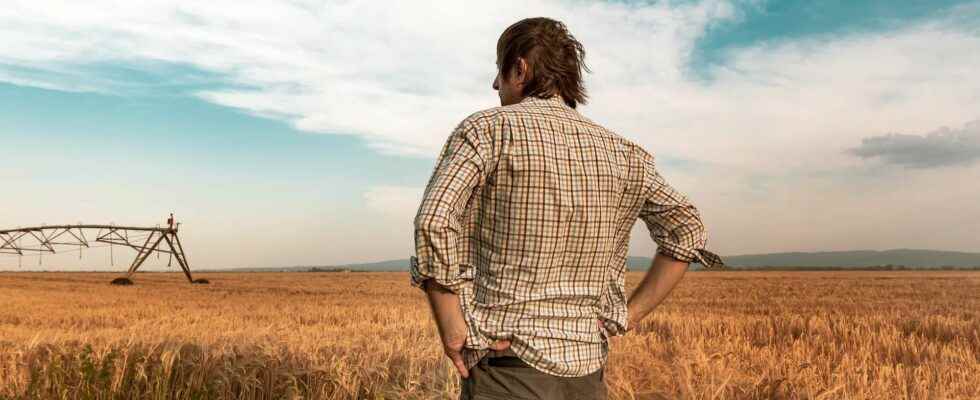You will also be interested
First of all, we wanted to announce that all Mag orders will now be made online only on our Ulule page !
Agriculture, at the heart of questions for the future?
Why agriculture for the third dossier? Because its transformation is a major challenge for our societies, which will have to fight against increasingly pronounced and violent global warming. What impact will this planetary phenomenon have on plants, and therefore on the animals that feed on them, and that we consume massively, is one of the questions that worries researchers and farmers. Will plant growth be stunted by heat stuffy? Will crops be destroyed by floods, or even reduced by late frosts, as we have already seen in France and other countries? What nutritional value for cereals subjected to extreme heat and droughts ?
Climate change therefore poses enormous challenges to humanity, in particular through the threats it poses to food security in the world. To avoid repeated famines, drivers of political destabilization, many call for cultivating earth other. How ? Doing “with nature, not against it”as suggested by permaculture. Futura met with some players concerned with restoring the soil. In the pages of the file, a portfolio also and a visit to a breeder converted toagroforestry.
“The storm is brewing. And it may be difficult to deflect it. But some can teach us to dance in the rain. They are to be discovered in the Mag’ de Futura”.
Nathalie Mayer, scientific journalist.
On the menu of the file on the agriculture of tomorrow
Decryption: How plants transform minerals in matter alive
Before exploring ways to improve agricultural practices, let’s first understand the needs of plants. Dive into the heart of these prodigious vegetable machines, capable of transforming theairthe light and minerals in organic matter, that is to say the basis of all living things.
Reportage : When farmers restore soil life
We met a couple of organic farmers, in the Rhône, who surrounded themselves with agronomists and microbiologists to learn how to revive and preserve their land. The opportunity to become aware of the presence of these billions of microorganisms living in a fascinating symbiosis right under our feet. Where how soil-friendly practices create a virtuous circle for agriculture.
Photo gallery : These small producers who feed the world
In the Philippines, in Colombia, in Scotland, in Zimbabwe… Around the world in photos, via the Gaïa Foundation, farmers who cultivate on relatively modest land and reflect the diversity of agricultural practices and traditions. A praise of the small scale and of agroecological techniques as factors of resilience in the face of climatic hazards.
Investigation : How far can we relocate the power supply?
The relocation of food seems to be the subject of a broad consensus, in order to regain a certain autonomy and reduce the environmental impact of the food system. But what exactly does it imply? On what scale should you relocate? Will it be necessary to change the diet, repopulate the countryside, maintain solidarity between territories and between countries? We investigated all of these issues.
Reportage : Agroforestry to bring livestock back to life
In the Gers, Nicolas Petit, poultry farmer, has been cooperating for 20 years with the trees on his plots. Improvement of the soil, animal welfare, mitigation of climatic hazards, fodder… The economic and ecological virtues of agroforestry are impressive at the Cotton Farm. But are they generalizable?
Story : How the birth of agriculture changed the Earth
10,000 years ago our species domesticated animals and plants. The invention of agriculture led to a transformation of landscapes, sedentarization and the demographic explosion of human beings. An upheaval that could make the Neolithic the starting point of our environmental crisis? We go back to the archaeological and paleoclimatic traces of this decisive turning point.
… And many other subjects to discover in the magazine!
Interested in what you just read?
